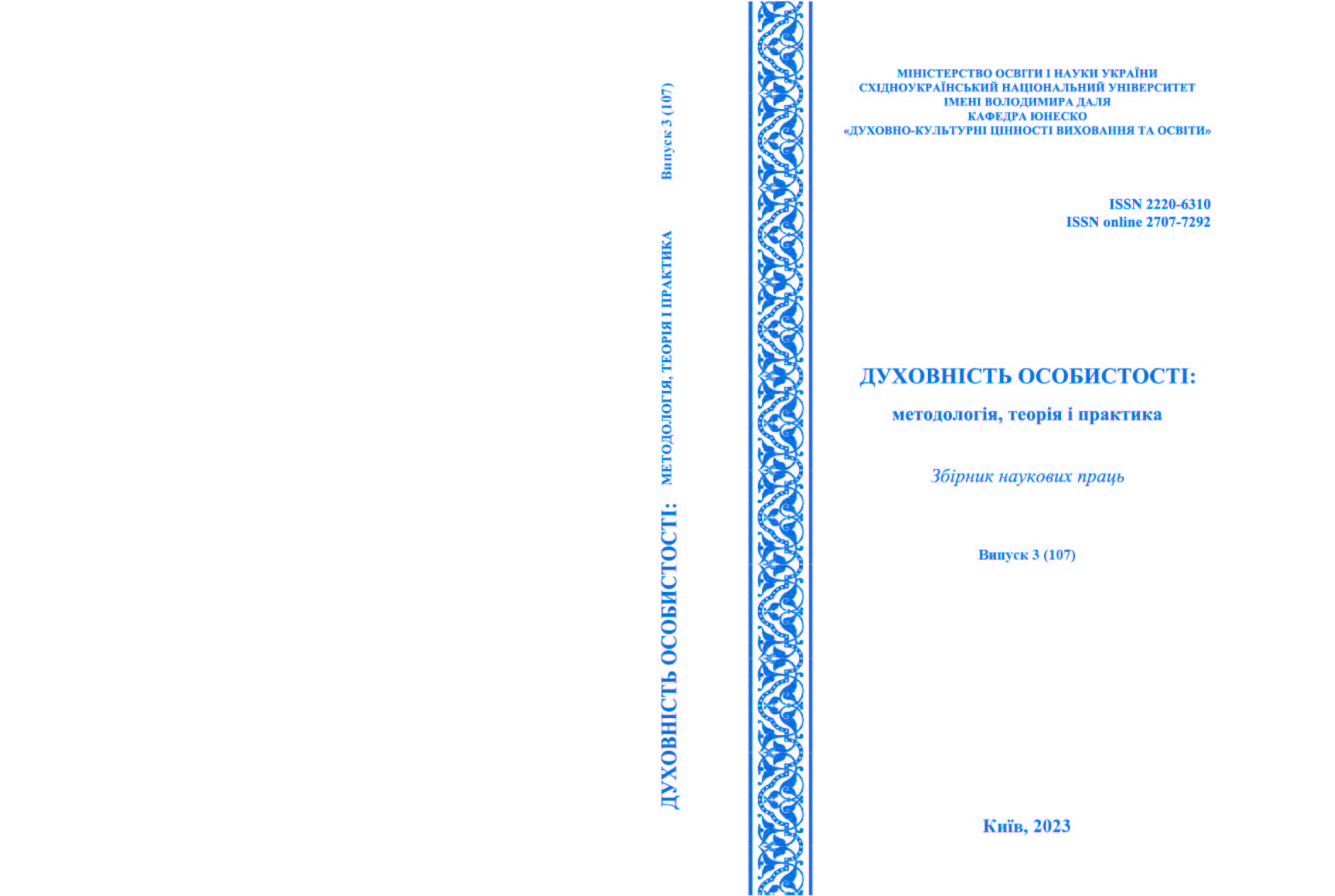CULTURAL AND SPIRITUAL VALUES OF EDUCATION OF FUTURE TEACHERS: AN INTERDISCIPLINARY APPROACH
DOI:
https://doi.org/10.33216/2220-6310/2023-107-3-103-113Keywords:
cultural and spiritual values, education, future teacher, value-meaning orientation, pedagogical educationAbstract
The article reveals the problem of preparing future teachers from the standpoint of axiological and humanistic approaches, which define education as an effective means of reviving national culture helping to foster socialization, self-organization, and personal responsibility; to lay the basics for would-be teachers to become guarantors of the civil world; to restore morality, social protection, and childhood protection; to show the way of becoming an open and democratic society. The areas of improvement of higher pedagogical education in the context of cultural and spiritual values of education are identified, which also include the education of a humanist teacher, professional, researcher, a citizen capable of effectively solving the tasks of teaching and educating schoolchildren in all areas of the educational system. Based on an interdisciplinary approach, the educational functions of pedagogical education and raising the status of education are determined. They include mastering the values of moral, civic, and spiritual culture of society and humanity, developing one's own attitude toward them; developing a value-meaningful attitude toward the teaching profession, and the actualization of the need to create oneself as a teacher and as a person; mastering pedagogical values, ideas as a part of humanitarian culture and universal human values and formation of a pedagogical worldview; forming civic positions of the individual, experience of protecting one's rights and compliance with the laws of a democratic society; developing intellectual and personal potential of students, their abilities and interests; developing spiritual and moral freedom of the individual, the ability to build one's life according to the laws of humanity.
It is concluded that the cultural and spiritual values of the teacher, which act as mechanisms of education, define a humanistic position towards children, a positive attitude towards pedagogical activity, the need for personal and professional self-realization, spiritual and moral needs (the search for the meaning of life, mercy, the ability to help people), and the ability to work in dialogue forms.

